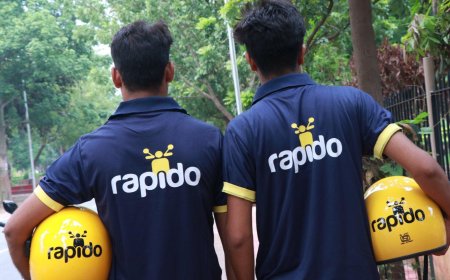Ananya Panday Advocates for Normalizing Conversations About Menstruation

Ananya Panday, often regarded as a youth icon in the Hindi film industry, has garnered attention with performances that resonate with the younger audience. In a candid interaction with News18, the Call Me Bae actor shared her personal experience of getting her first period, shedding light on the need for open discussions surrounding menstruation.
“When I got my first period, I remember being in school, and I didn’t understand what had happened to me because no one had spoken to me about it. When I went home, I was very scared because I thought something was wrong with me and that I had hurt myself. I didn’t know what was happening. But my mum and my daadi gave me gifts, and they told me that this is a moment to celebrate,” she revealed.
Highlighting the importance of creating awareness, Panday emphasized that discussions about menstruation should not shy away from involving men. “You’ve to ask for what you need, and I’ve seen that they’ll give you even if that makes a few men around you uncomfortable,” she added, encouraging a collective effort to normalize conversations around the topic.
The Role of Men in Supporting Women
Experts have pointed out that the journey to breaking taboos around menstruation begins with fostering open dialogue. Speaking to IndianExpress.com, Ashutosh Tiwari, a psychologist at MindGlass Wellbeing, stressed the significance of education and awareness.
“Discussion on normalizing talk around periods starts with breaking the silence and is achieved through open dialogue – listening to the needs and hesitations of all ages of men and women and social groups, and then taking forward the best-suited approach for all,” Tiwari said.
He highlighted the need for community members to challenge long-standing taboos through healthy, need-based dialogue and assertive communication. “The goal is to normalize menstruation as a biologically occurring process in women through education and awareness programs, media discussions and representation, and a positive cultural shift that allows women to enter the kitchen and participate in worship,” he added.
Tiwari also emphasized how men can play a pivotal role in breaking these stigmas. Demonstrating empathy, understanding the needs of women, and actively supporting them—whether by assisting in purchasing menstrual products or scheduling medical appointments—can make a significant difference. He further encouraged challenging gender norms that prevent menstruating women from participating in everyday activities such as cooking or worship.
Impact of Menstrual Stigma on Mental Health
The stigma associated with menstruation has profound effects on women’s mental health, especially teenagers. Lack of openness has often led to misinformation, social isolation, and even disruptions in education. Many women face additional physical and emotional discomfort as they hesitate to share their situation with family members due to fear of judgment.
Tiwari suggested several initiatives to address these issues, including workplace policies accommodating the physical and psychological challenges women face during menstruation, school programs educating both genders about menstruation, and community-building initiatives that foster a supportive environment.
By encouraging awareness and fostering open dialogue, societal attitudes toward menstruation can shift, creating an inclusive environment that embraces this natural biological process.
What's Your Reaction?


























